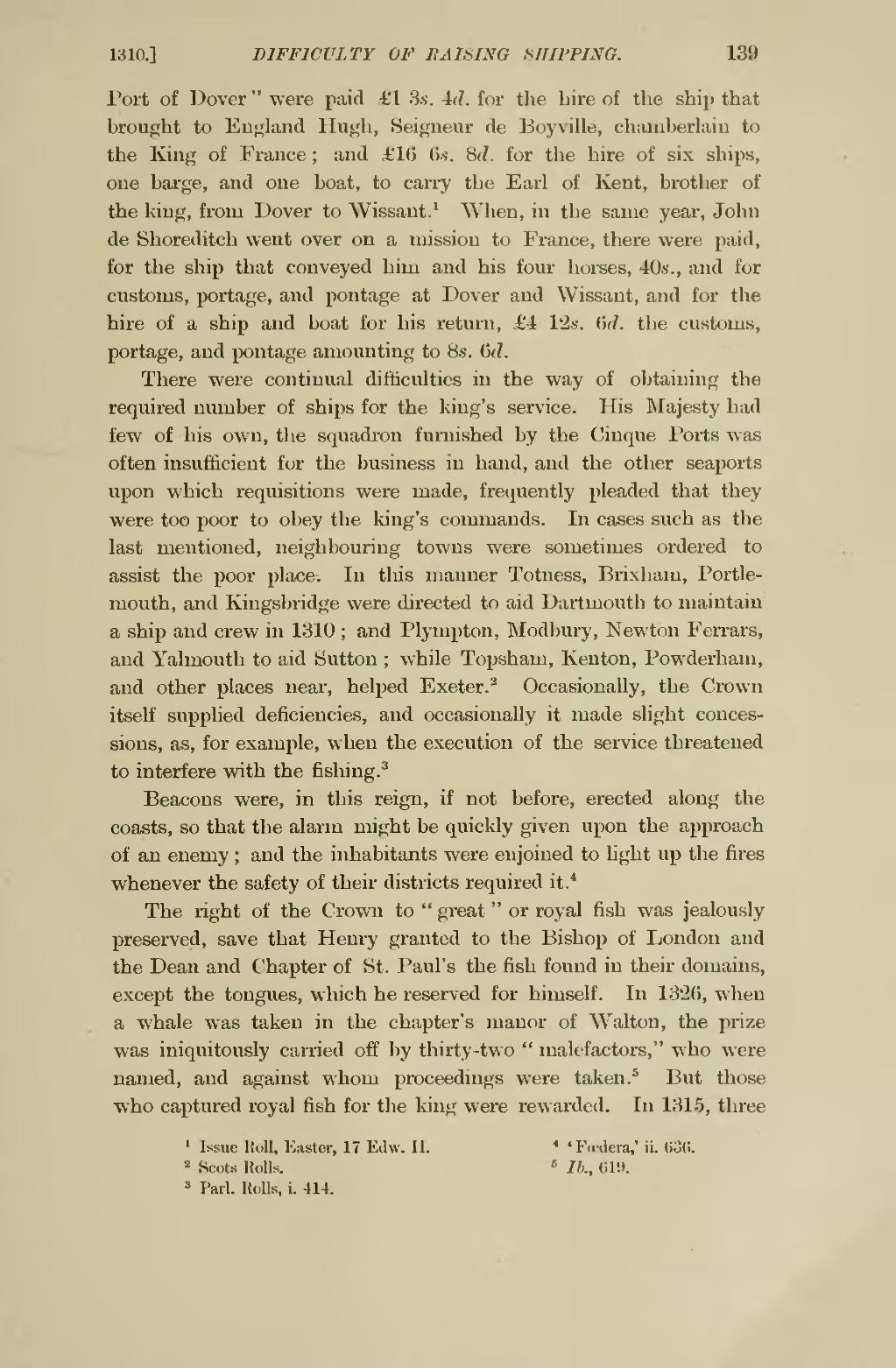Port of Dover" were paid £1 3s. 4d. for the hire of the ship that brought to England Hugh, Seigneur de Boyville, chamberlain to the King of France; and £16 6s. 8d. for the hire of six ships, one barge, and one boat, to carry the Earl of Kent, brother of the king, from Dover to Wissant.[1] When, in the same year, John de Shoreditch went over on a mission to France, there were paid, for the ship that conveyed him and his four horses, 40s., and for customs, portage, and pontage at Dover and Wissant, and for the hire of a ship and boat for his return, £4 12s. 6d. the customs, portage, and pontage amounting to 8s. 6d.
There were continual difficulties in the way of obtaining the required number of ships for the king's service. His Majesty had few of his own, the squadron furnished by the Cinque Ports was often insufficient for the business in hand, and the other seaports upon which requisitions were made, frequently pleaded that they were too poor to obey the king's commands. In cases such as the last mentioned, neighbouring towns were sometimes ordered to assist the poor place. In this manner Totness, Brixham, Portlemouth, and Kingsbridge were directed to aid Dartmouth to maintain a ship and crew in 1310; and Plympton, Modbury, Newton Ferrars, and Yarmouth to aid Sutton; while Topsham, Kenton, Powderham, and other places near, helped Exeter.[2] Occasionally, the Crown itself supplied deficiencies, and occasionally it made slight concessions, as, for example, when the execution of the service threatened to interfere with the fishing.[3]
Beacons were, in this reign, if not before, erected along the coasts, so that the alarm might be quickly given upon the approach of an enemy; and the inhabitants were enjoined to light up the fires whenever the safety of their districts required it.[4]
The right of the Crown to "great" or royal fish was jealously preserved, save that Henry granted to the Bishop of London and the Dean and Chapter of St. Paul's the fish found in their domains, except the tongues, which he reserved for himself. In 1326, when a whale was taken in the chapter's manor of Walton, the prize was iniquitously carried off by thirty-two "malefactors," who were named, and against whom proceedings were taken.[5] But those who captured royal fish for the king were rewarded. In 1315, three
